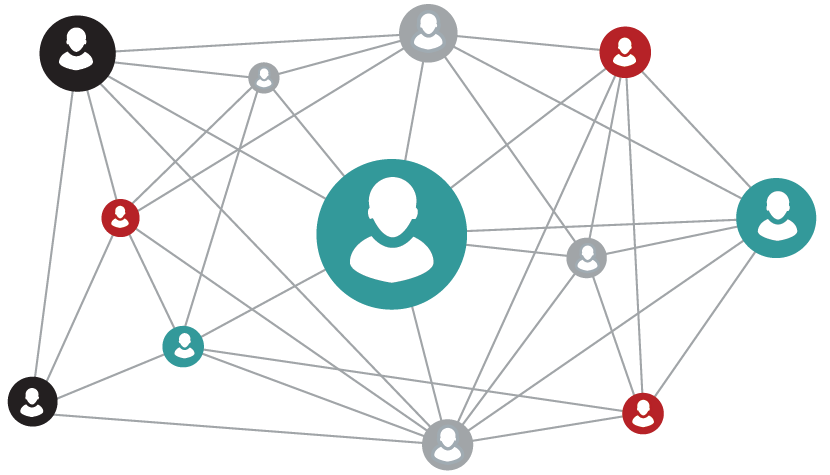
This week we honored George Floyd’s life in memoriam, we watched the world rise up with us in solidarity against racism, and we heard vehement demands for policing reform. This swell of activism and empathy with and for the Black community has been met with backlash by police chiefs demanding respect and our president using the age-old evasion tactic of blaming individual bad actors instead of acknowledging systemic racism.
As the tide has shifted outside our organizations, so it has within them. Last week many organizations were focusing on leaders publicly responding in solidarity, providing resources for employees, making donations, and holding forums, town halls, or listening tours. This week some organizations are transitioning to longer-term thinking and planning for deep, durable change, while others are struggling to identify next steps.
Forshay once again connected this week with our community of leaders, diversity and inclusion practitioners, people leaders, and scientists across the US to share challenges, insights, and ideate solutions. With their permission, we are sharing what we heard in order to get ideas and resources out to the broader community so that we can help each other as we navigate this critical time.
WHAT WE ARE HEARING
Here’s what we are hearing about what’s happening in our organizations right now.
SPECTRUM OF STARTING POINTS For some organizations, current events have sparked the beginning of their I&D (inclusion & diversity) journey, while others are farther along the path. For many companies, acknowledging inequalities (often in the form of leadership messages of support), holding listening sessions, or donating to anti-racist nonprofits, is a big step. A small proportion of organizations have been committed to systemic equity since inception. And there are myriad somewhere in between.
LISTENING GONE AWRY Some company-wide listening tours have been productive, while others have created additional unintentional conflict or emotional and psychological pain. For example, turning exclusively to Black employees for finding solutions – adding to their mental load, focusing solely on the guilt that white employees experience, disruptive and counterproductive calls to recognize that “all lives matter,” and participation exclusively by majority member groups at the expense of hearing Black voices.
RUSH TO ACT VERSUS SUSTAINABLE CHANGE People leaders report that urgent requests are flooding in to make immediate statements of commitments to internal initiatives and changes. Many feel rushed and are worried that a focus on sustainable impact is getting missed. One HR leader noted that “the rush to make a statement avoids sitting in the uncomfortable reality of right now.”
MANAGERS ARE CULTURAL KEYSTONES Some organizations are realizing they need to intervene with managers. Managers are the point at which an organization’s policies and culture get enacted. They are the culture carriers, yet a lack of recognition of this critical role seems to be widespread.
WHAT IS HAPPENING
Here’s what organizations across the country are doing right now.
TASK FORCES Organizations are creating internal task forces composed of a diverse group of employees from across all levels of the organization. These teams are collecting data to explore where the organization lacks fairness and diversity and how to address those challenges.
EXPERT FACILITATION Forums where employees can share what they’re experiencing are valuable, but they require trained facilitators who can ensure that dominant or counterproductive voices do not derail the conversation. Recognizing that different populations need different forms of learning and support, some organizations are using expert facilitators to lead “healing circles” for all employees. In one successful case, a co-facilitation model was used with one Black facilitator and one trauma psychologist. The pair held three sessions — one for Black employees where they could safely process what is happening; one for allies that focused on looking beyond immediate actions to long term involvement with change; lastly one for all employees together.
FRAMEWORK FOR ACTION Given the complexity of structural racism, some organizations are using a framework that targets three forms: the experience of individual employees, discrimination in institutional policies and procedures, and the hidden structural systems of power in society at large.
TALKING ABOUT POWER One CEO shared that their organization is talking through power structures in the organization. A practitioner encouraged majority group members to share their power with BIPOC folks while they look at how they can create a more sustained way of ensuring fairness into the future. There is growing recognition that investment in comprehensive equity analyses across the entire employee lifecycle is essential for robust and systemic change.
OPEN QUESTIONS WE ARE HEARING
- How do we help leaders understand that condemnation and statements of support are important, but changing how organizations operate—how decisions are made and who has power— will create true, lasting change?
- How do we create an environment where people are confident that they’ll be treated and valued equally and will have the same opportunities as everyone else to advance within the organization?
- Should we strike while the iron is hot and quickly roll out new initiatives or step back and think more intentionally about what action to take?
- What is the appropriate balance of being bold with antiracist training while also meeting people at their level of familiarity with these complicated topics?
- Is unconscious bias training effective at addressing racial injustice, and which kinds of training is most effective?
- As new task forces and committees are formed, how do we ensure the work they are doing is compensated and not just added on top of their regular duties?
- For organizations with low numbers of Black employees, how do we engage these few Black employees and assure them that their voices matter without leading them to feel that they are responsible for solving problems that they did not create?
TAKING CONTINUED ACTION
We at Forshay are committed to sharing what we learn, as we learn it. We are committed to convening passionate leaders, leading edge researchers/scientists, and innovative diversity and inclusion practitioners to share insights and actions. We invite you to join the conversation. Contact us at info@forshay.com.






